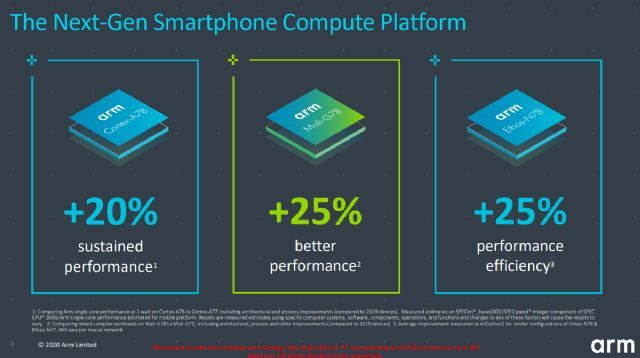The 5G Apple iPhone 12 series might not be the first phones powered by a 5nm chip

TSMC and Samsung, the numbers one and two contract foundries in the world in that order, are both in a race to produce the next-generation chipset. TSMC is believed to have started mass-production of chips using its 5nm process node. The Apple A14 Bionic chipset is supposed to be produced using this process and the 2020 iPhone 12 line could be the first smartphones to be powered by a 5nm chip.
Is the Exynos 992 made using the 6nm or 5nm process?
What's the difference between the 7nm A13 Bionic SoC and the 5nm A14 Bionic SoC? The former is packed with 8,5 billion transistors while the new chip will contain 15 billion transistors; generally, the more transistors in a chip, the more powerful and energy-efficient the semiconductor is. At 5nm, there are 171.3 million transistors packed into a square mm compared to nearly 96.5 million using the 7nm process. Most high-end Android handsets this year are powered by the 7nm Snapdragon 865 Mobile Platform. The first Android phones to have a 5nm chip was expected to be the Huawei Mate 40 line (although this would use an open-source version of Android) expected later this year. But if a report by ZDNet Korea is legit, there is a chance that the Samsung Galaxy Note 20 series might beat out not only the Huawei Mate 40 models but also the iPhone to become the first handsets powered by a 5nm chip.

Render of the Samsung Galaxy Note 20+ 5G
The report states that Samsung has finished preparations for mass-production of a 5nm chip that would be named the Exynos 992 chipset and adds that Samsung is deciding whether to employ the chip on the Galaxy Note 20 series. The Exynos 992 would also use ARM's latest Cortex-A78 CPU cores which will supposedly deliver a 20% hike in sustained performance while consuming 50% less power than the Cortex-A77 cores. The latter CPU core is used on the Snapdragon 865 Mobile Platform. The Exynos 992 would also include ARM's Mali-G78 GPU which is said to offer a 25% performance hike over ARM's Mali-G77 GPU. The latter is used on the Exynos 990 chipset that powers all European versions of the Galaxy S20 series.
You should take this leak with a grain of salt. The original leak from last month called for the Exynos 992 to be built using a 6nm process and at the time ZDNet said that it would be 1% to 3% faster than the Snapdragon 865 SoC. The report back in April also said that Samsung might decide to have the Exynos 992 power the Note 20 phones in South Korea along with Europe. Employees of Samsung's Exynos team in South Korea were said to be humiliated by the company's decision to use the Snapdragon 865 SoC to power Galaxy S20 models in the country.

Thanks to the ARM Cortex-A78 CPU core, the Exynos 992 out performs the Snapdragon 865
Besides the discrepancy between it being made using the 6nm or 5nm process, there is another reason to question the new report. Traditionally, Samsung introduces new chips for its high-end phones with the Galaxy S series at the beginning of the year and keeps the same silicon for the Galaxy Note series. The Galaxy Note 20+ could feature a large 6.9-inch Dynamic AMOLED display with a QHD+ resolution, a 120Hz refresh rate, and a 20:9 aspect ratio. Sammy might pack the new model with 12GB or 16GB of memory and 128GB, 256GB, and 512GB of UFS 3.1 storage. The 108MP primary camera will use 9:1 pixel binning to deliver 12MP images, and there will be a telephoto camera with a periscope, but no 100x Super Zoom. We will also see an ultra-wide camera and a time-of-flight depth sensor; the front-facing selfie snapper should weigh in at 40MP. The handset will be equipped with a 4500mAh battery. Instead of using the 5000mAh battery that powers the Galaxy S20 Ultra 5G, Samsung had to reduce the capacity of the Galaxy Note 20+'s battery due to space constraints brought on by the housing for the S Pen. The Galaxy Note 20 will sport a smaller 6.4-inch FHD+ display.










Things that are NOT allowed: